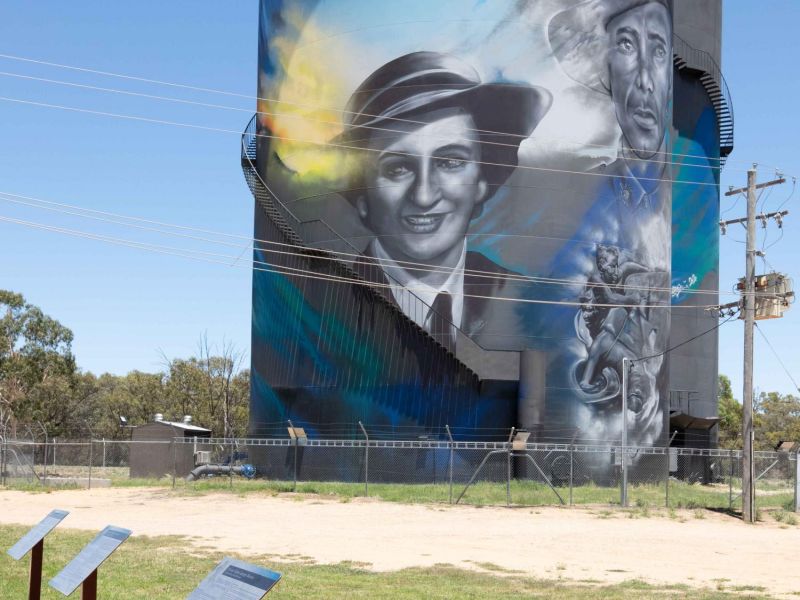PTE Norman Charles FLACK
Norman Flack was born in Hay, NSW on 2 January 1920. He was a popular and highly thought of young man, a keen tennis player and a very good bike rider, being placed in many road races. He completed a 5-year apprenticeship as a motor mechanic with Hay Motors and remained employed with them on his return from the war.
Norman enlisted in the Australian Army on 26 June 1040 at Wagga Wagga, serving in Ordnance Corp, 2/19th Battalion, 8th Division which consisted largely of bushmen recruits from the country, particularly the Riverina area of NSW. His unit trained in camps at Wagga Wagga, Wallgrove, Bathurst and Liverpool.
He sailed from Sydney on 4 February 1941 and two weeks later disembarked in Singapore.
In January 1942 he was involved in the Battle of Muar, Malaya, when the Australians initially forced the Japanese to retreat, but were forced into a fighting retreat south towards Singapore. Less than 300 men of the 2/19th Battalion came out of this battle.
During intense fighting over the next 18 months, Norman ‘went missing’ three times, but it was not until 23 September 1943 that he was confirmed as a POW of the Japanese.
In March 1943 he had been transferred to ‘D’ Force – a group of about 5,000 British and Australian troops – who were bound for the ‘Death Railway’ in Burma where they would endure a desperate struggle for survival as the monsoon produced more difficult conditions and brought fresh outbreaks of disease with it. Somewhere along the line he was transferred to work in a Thai tin mine.
In mid-1944 he was transferred to Japan and was working in a diamond-coal mine on the island of Kyushu. When the second atomic bomb was dropped on Nagasaki on 9 August 1945, Norman was down the mine, only 16kms away.
Suffering severe malnutrition after 3 years and 7 months of captivity, Norman was recovered from the Japanese at Ohama, Japan on 15 September 1945 and transferred to a holding camp in the Philippines. He embarked for Sydney on 4 October 1945 aboard the British aircraft carrier HMS Speaker, her empty aircraft hangars now fitted out for carrying home liberated prisoners of war.
The returning soldiers were told that their homecoming was forcibly delayed by the lack of a berth due to urgent paint repairs, rather than because of striking Sydney Waterside Workers.
After 5.5 years in the AIF, Norman resumed work with Hay Motors as a motor mechanic before working with his brother-in-law, Ron Turner for five years sinking artesian bores. He then worked on Tom’s Lake Station, near Booligal, as a windmill and general mechanic for almost 11 years. After returning to Orson Street in the Hay township he married Marjorie Pocock and they had three daughters, Julia, Catherine and Elizabeth.
Norman Flack died of cancer on 16 December 1990, thought to have been caused by radiation fallout from the Nagasaki atomic bomb.
 Western Front Association Central Victoria Branch
Western Front Association Central Victoria Branch